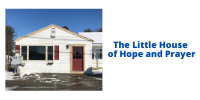Zephaniah
- Who was Zephaniah?
- The author, Zephaniah, traces his ancestry back four generations. This is unique among the prophets. Zephaniah 1:1: The word of the Lord which came unto Zephaniah the son of Cushi, the son of Gedaliah, the son of Amariah, the son of Hizkiah, in the days of Josiah the son of Amon, king of Judah.
- Date and Time in which he lived
- In the verse we just read, the author places himself during the reign of Josiah, son of Amon, king of Judah (c. 641-609 B.C.)
- When was the book written?
- Many would date the book prior to Josiah’s reforms (622-621 B.C.) which dealt with much of the nation’s idolatry since there are implications of idolatry in Zephaniah’s Judah. We see one reference to this in Zephaniah 1:4-6: I will also stretch out mine hand upon Judah, and upon all the inhabitants of Jerusalem; and I will cut off the remnant of Baal from this place, and the name of the Chemarims with the priests; And them that worship the host of heaven upon the housetops; and them that worship and that swear by the Lord, and that swear by Malcham; And them that are turned back from the Lord; and those that have not sought the Lord, nor enquired for him.
- Why was Zephaniah important and What was his call?
- This book mentions the day of the Lord more than does any other book in the Old Testament, clarifying the picture of Judah’s fall to Babylon and the eventual judgment and restoration of all humanity in the future. In this case, it refers primarily to God’s impending time of judgment on the nation of Judah
- Zephaniah saw in the day of the Lord the destruction of his country, his neighbors, and eventually the whole earth. Zephaniah 2:10: This shall they have for their pride, because they have reproached and magnified themselves against the people of the Lord of hosts.
- Zephaniah wrote that the Day of the Lord was near. Zephaniah 1:14: The great day of the Lord is near, it is near, and hasteth greatly, even the voice of the day of the Lord: the mighty man shall cry there bitterly.
- He wrote that it would be a time of wrath, and of judgment against sin. Zephaniah 1:15 and 17: That day is a day of wrath, a day of trouble and distress, a day of wasteness and desolation, a day of darkness and gloominess, a day of clouds and thick darkness, And I will bring distress upon men, that they shall walk like blind men, because they have sinned against the Lord: and their blood shall be poured out as dust, and their flesh as the dung.
- He wrote that all of this ultimately would result in the blessing of God’s presence among His people. Zephaniah 3:17-18: he Lord thy God in the midst of thee is mighty; he will save, he will rejoice over thee with joy; he will rest in his love, he will joy over thee with singing. I will gather them that are sorrowful for the solemn assembly, who are of thee, to whom the reproach of it was a burden.
- What was his mission?
- His mission was to hear the words of the Lord, and deliver them. Some of the words he had to share were tough words of judgment, and some of the words near the end gave hope to the people of Israel. He had to deliver what God gave him. Just like it is my job and that of every pastor to speak the truth of God’s Word today, no matter how hard to hear, or what the consequences might be to us.
- What was his greatest word to his people and us?
- In Zephaniah’s time, and in our time, God allows and sends judgment because people are not turning to Him. The things that are plaguing our world are because God is dealing with sin, and wanting to show his love and mercy if we will just bow the knee and turn to Him. When we do there’s hope, peace, restoration, and blessings. ,Zephaniah 3:8-11: 8 Therefore wait ye upon me, saith the Lord, until the day that I rise up to the prey: for my determination is to gather the nations, that I may assemble the kingdoms, to pour upon them mine indignation, even all my fierce anger: for all the earth shall be devoured with the fire of my jealousy. For then will I turn to the people a pure language, that they may all call upon the name of the Lord, to serve him with one consent. From beyond the rivers of Ethiopia my suppliants, even the daughter of my dispersed, shall bring mine offering. In that day shalt thou not be ashamed for all thy doings, wherein thou hast transgressed against me: for then I will take away out of the midst of thee them that rejoice in thy pride, and thou shalt no more be haughty because of my holy mountain.
- What can we learn from Zephaniah
- Those living in Judah had turned the worship of God into a fiasco. Not only had they built their own places of worship to revere other gods (called “high places” in the Old Testament), but they had begun to desecrate the temple, which at that time was the dwelling place of God Zephaniah 1:9: n the same day also will I punish all those that leap on the threshold, which fill their masters’ houses with violence and deceit.
- As modern-day believers in Christ, we, too, make a mockery of worship when we live in open sin. Do you come before the Lord with a false face, week in and week out, looking the part without acting it? Allow Zephaniah to remind you how seriously God takes your life and your relationship with Him. And if you have failed, remember the message of Zephaniah 3—God is always a God of restoration and hope.



